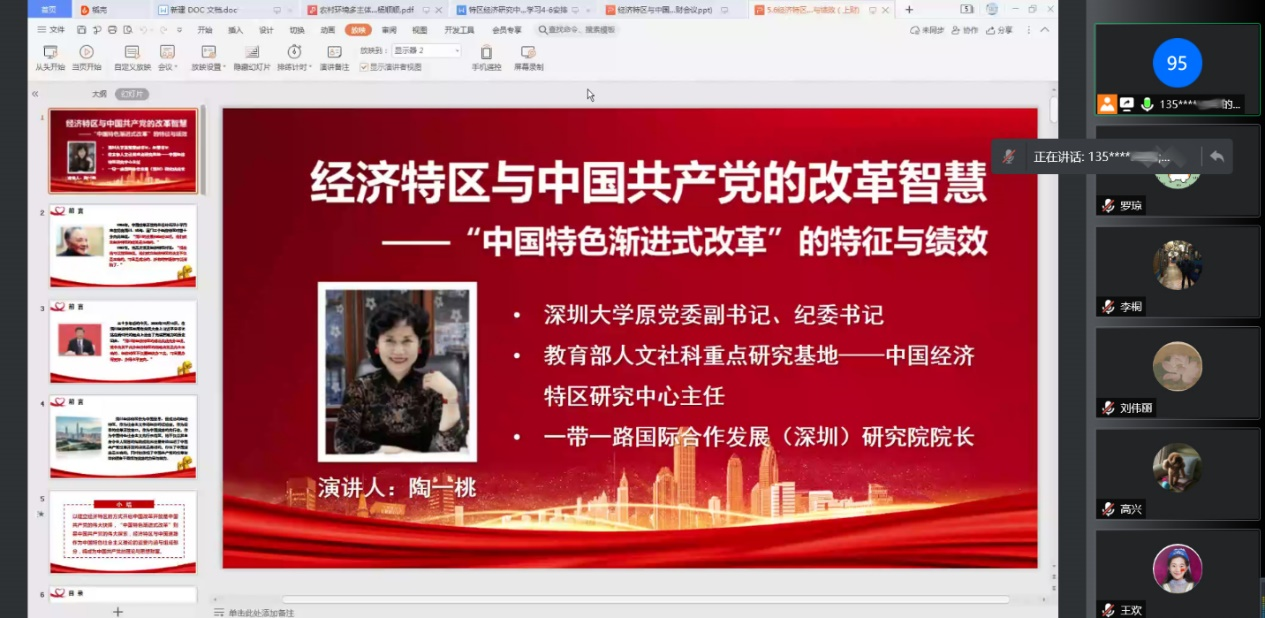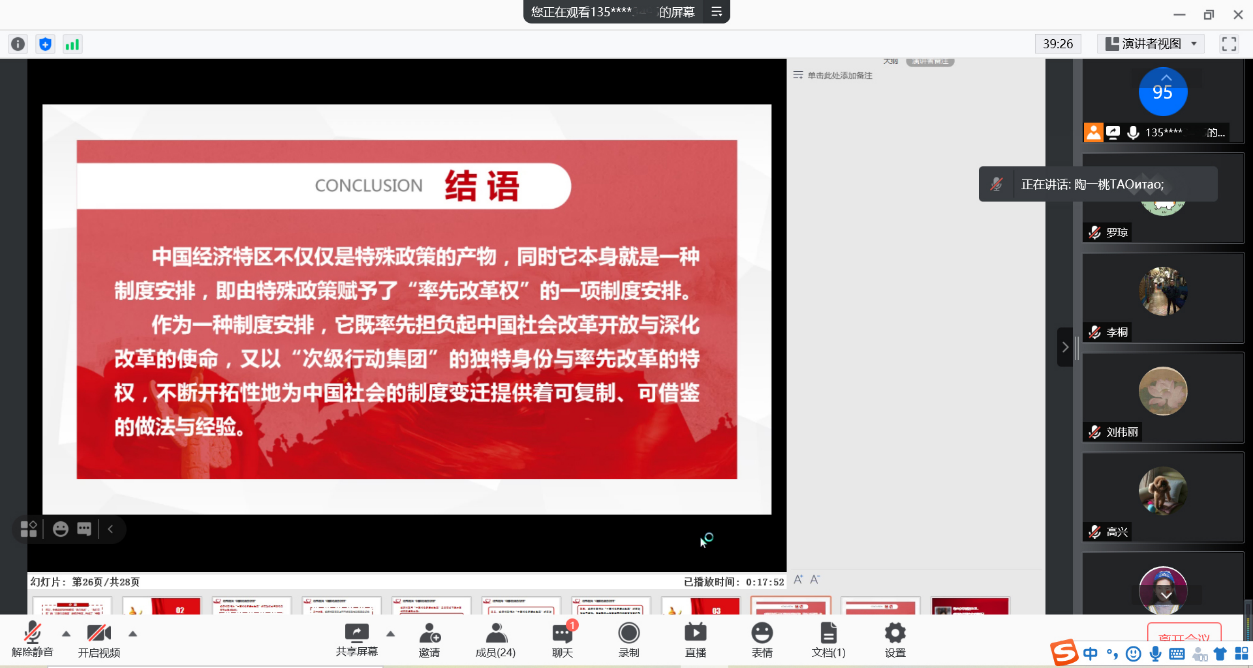On July 2, 2021, the Communist Party Branch of the China Center for Special Economic Zone Research (CCSEZR), Shenzhen University (SZU) held an online CPC lecture course. As the instructor, Prof. Tao Yitao, the former Deputy Secretary of the Party Committee of SZU, Secretary of Disciplinary Inspection Committee of SZU, director of the CCSEZR, and president of the Belt and Road Research Institute (Shenzhen) for International Cooperation and Development (BRRIICD), delivered a lecture titled “SEZ and CPC’s Wisdom on Reform”. Several CPC members in teachers and doctoral students from CCSEZR attended the course.

President Xi Jinping delivered a speech at a ceremony marking the centenary of the CPC, on July 1, 2021 and stated that “Since the very day of its founding, the Party has made seeking happiness for the Chinese people and rejuvenation for the Chinese nation its aspiration and mission.” In response to the remark of President Xi, Prof. Tao mainly addressed two topics in the lecture: 1) what is “the progressive reform with Chinese characteristics”; 2) internal logic of Special Economic Zones (SEZs) and the progressive reform with Chinese characteristics.
In Prof. Tao’s opinion, the progressive reform with Chinese characteristics and the typical progressive reform are different paths and choices along institutional evolution, and their differences lie in the institutional evolution model, the reform implementation path, and the reform subject. Chinese central government specifies two types of SEZs as “pilot areas” and “demonstration areas” respectively. The two types of “secondary actors” of economic reform play different roles and are indispensable to the progressive reform with Chinese characteristics. This unique “dual-actor structure” is a key to the good institutional performance along the Chinese path.
Prof. Tao believed that SEZs as a practice model and a path towards the progressive reform with Chinese characteristics have two functions: 1) SEZs implement national reform strategies under current institutions while constantly creating new institutional demands. They explore a way to progressive reform with Chinese characteristics by combining the “compulsory institutional change” designed by the Chinese central government and the “induced institutional change” triggered by special policies. 2) SEZs, as the outcome and driver of the compulsory institutional change, build an internal evolutionary logic for deepening the progressive reform with Chinese characteristics by mutually reinforcing the above two types of institutional changes.
Regarding the internal logical relations between SEZs and the progressive reform with Chinese characteristics, Prof. Tao pointed out that SEZs created a strong "siphon effect" through induced institutional change, which improved the institutional performance of progressive reform with Chinese characteristics, but also produced a growing “diffusing effect” which amplified the policy release effect and radiation of this progressive reform. Moreover, SEZs have institutionally generated a "trickle-down effect" but are also facing the issues caused by an "inverted U-shaped" relationship between spatial inequality and economic development in the cities that have grown rich first. The SEZs need to close the widening wealth gap between rich and poor that accompanies rapid GDP growth through the efforts in internal logic and mechanism building, so as to share the fruits of reform and opening-up and improve people’s well-being.

At the end of the lecture, Prof. Tao underlined that China’s SEZs are not only the product of the country’s special policies, but also an institutional arrangement of leveraging special policies to empower the SEZs to pilot reform. Therefore, establishing SEZs is not a matter of expediency, but an approach and path of the progressive reform with Chinese characteristics and also an important part of the Chinese path. As the actor of this progressive reform, we should continue to establish and develop SEZs, and assign new roles and missions to them.
(Correspondent: Luo Qiong)

